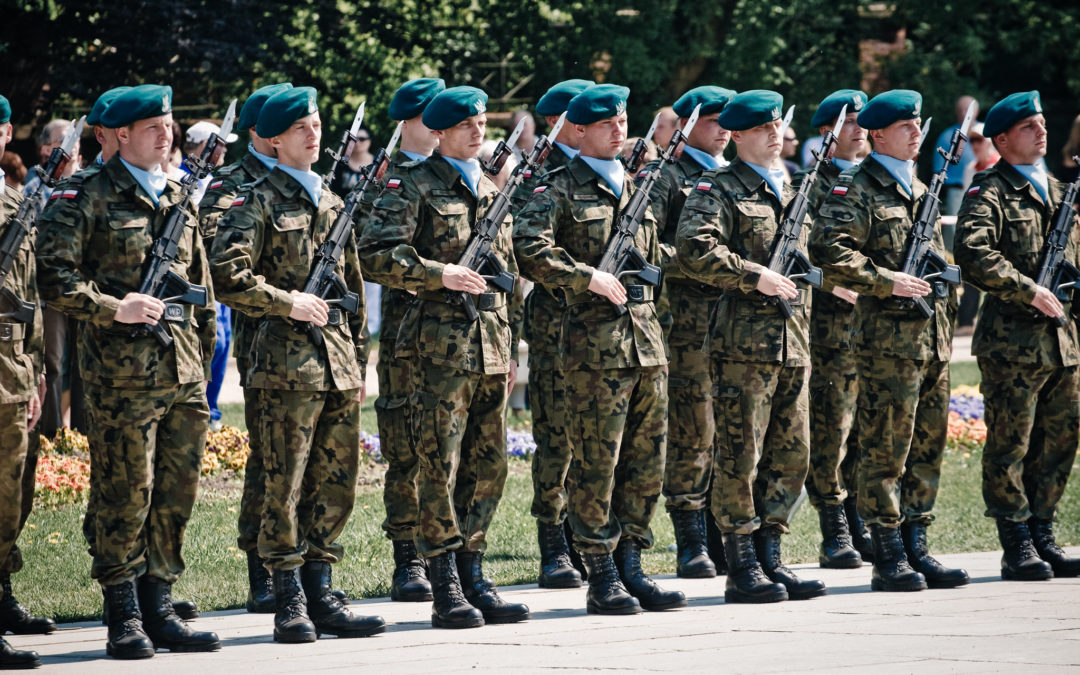Polish soldiers crossed the border with the Czech Republic and set up a checkpoint outside a chapel on the Czech side, reportedly barring people from entering it. Poland’s defence ministry blames a “misunderstanding”.
The chapel in question is thirty metres inside the Czech side of the border, across from the Polish village of Pielgrzymów. The building is often frequented by tourists and had been serving both the Polish and Czech communities before the border was closed in response to the coronavirus pandemic.
According to reports, first revealed by Czech news portal Deník earlier this week, Polish soldiers crossed the border at Pielgrzymów into the Czech Republic in late May and established a guarded checkpoint outside the chapel, forbidding entry to it.
Jakbyśmy mieli mało problemów…
Polskie wojsko wkroczyło do Czech 🇨🇿 i okupuje kapliczkę. To się dzieje naprawdę https://t.co/N4RxJrvAmD
— Bartosz T. Wieliński 🇵🇱💯 (@Bart_Wielinski) June 10, 2020
Pictures published by the Czech news site show a group of armed Polish soldiers guarding the building as they sit around an open fire.
The incident was due to “a misunderstanding by the Polish side”, according to Hana Malá, a press spokesperson from the Czech interior ministry. She says that the situation has been resolved and the chapel is now accessible.
The Polish defence ministry later confirmed in a statement that “the location of the post was the result of a misunderstanding, not a deliberate act, and was immediately corrected”.
“The Polish army makes every effort to ensure the security of borders and Polish citizens in a difficult fight with our opponent – the coronavirus,” said the ministry in a statement to Gazeta.pl. “Every day, several thousand soldiers perform activities aimed at limiting the spread of the virus.”
The whole affair is over. The Polish Defense Ministry now says the situation occurred as a result of a "misunderstanding". If you say so…https://t.co/axCUImAzmm
— Tomasz Rolbiecki (@TomaszRolbiecki) June 10, 2020
The incident, which appears to have lasted for around a week, caused disruption on the Czech side of the border, with allegations that the Polish soldiers had forbidden tourists and workers from visiting the chapel.
On 28th May, reports Deník, a construction expert travelled to the chapel to photograph its plasterwork, but Polish soldiers forbade him from taking any pictures of the building. The soldiers allegedly told him Czechs were not allowed to visit the building.
A similar accusation was made by the coordinator of an organisation arranging a visit to the chapel, reported Deník. Ivo Dokoupil said he had not been allowed to stand within ten metres of the chapel.
“When a soldier with a submachine gun in a foreign army uniform orders you about, it’s a horrible experience,” said Dokoupil. “Why is the Polish army deciding where I can go in Czech territory and where I can’t?”
However, the Polish defence ministry said the accusation that the guards had forbidden photography was untrue, explaining that the soldiers had only told visitors not to photograph the checkpoint.
Poland was one of the earliest countries in the European Union to close down its borders, putting restrictions in place in mid-March. Today it was announced by the prime minister that they would begin reopening on Saturday.
At the start of May, Polish, German and Czech local leaders from the communities where the three countries’ borders meet celebrated the anniversary of Poland and the Czech Republic joining the EU by sharing a glass of champagne across the river that marks the border.
Polish, German and Czech local leaders from the communities where the three countries' borders meet yesterday celebrated the anniversary of Poland and the Czech Republic joining the EU by sharing a glass of champagne across the river that marks the border https://t.co/7ZixxrU7oa
— Notes from Poland 🇵🇱 (@notesfrompoland) May 2, 2020
Main image credit: Wlodi/Flickr (under CC BY-SA 2.0)

Juliette Bretan is a freelance journalist covering Polish and Eastern European current affairs and culture. Her work has featured on the BBC World Service, and in CityMetric, The Independent, Ozy, New Eastern Europe and Culture.pl.




















